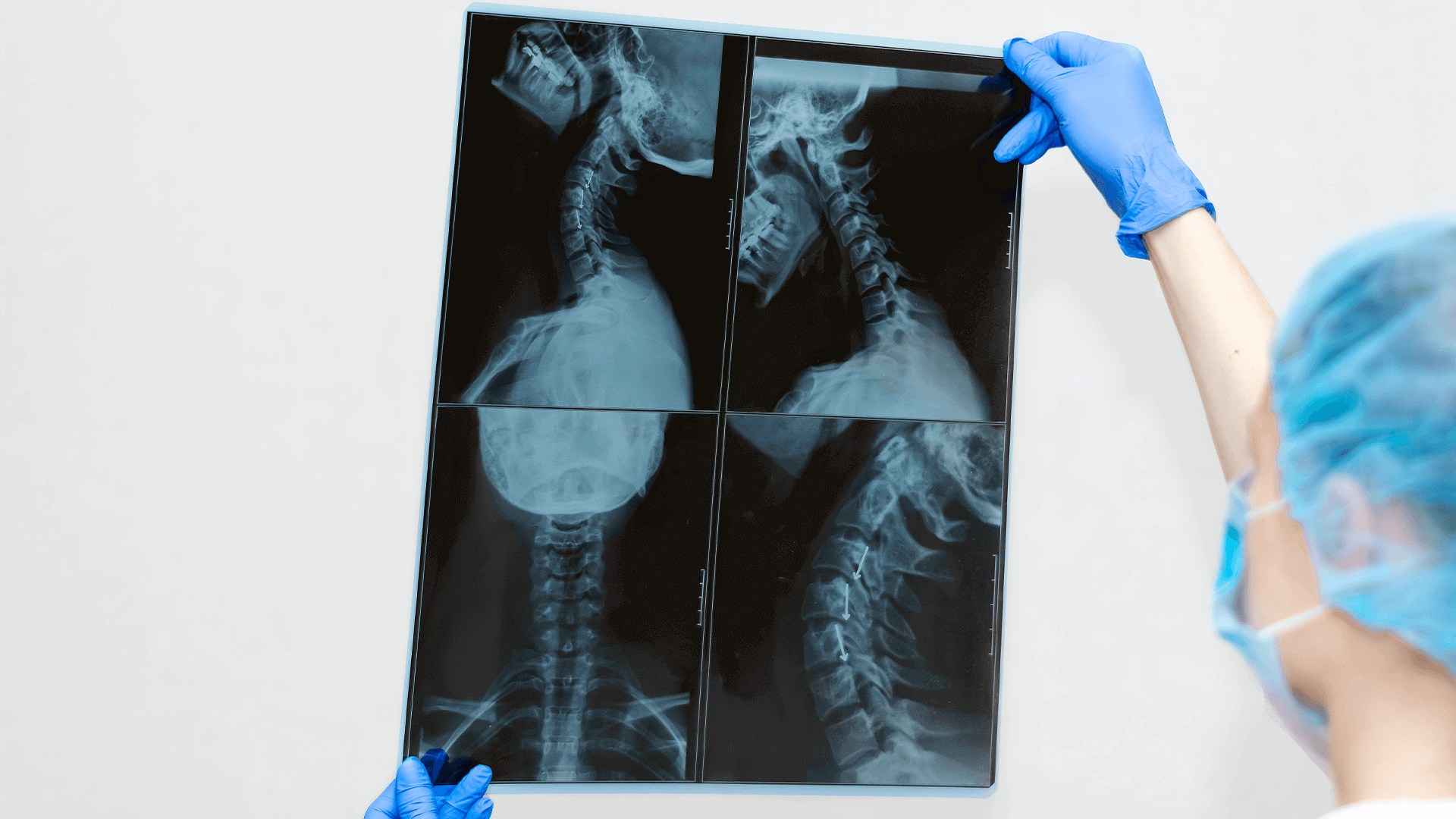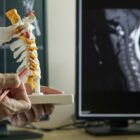Are you someone who suffers from neck or arm pain? Then anterior cervical surgery might be for you.
Anterior cervical operations are one of the many well-known surgery procedures for alleviating symptoms from degenerative disc disease of the neck.
However, the procedure is not for everyone. Let’s take a look at whether the surgery is right for you
Why Does My Neck Always Hurt?
Neck pain is a very common ailment that affects most of us at some point during our life. Neck complaints are among the most common reasons why people go to see a doctor.
But what causes neck problems? Some of the most common reasons for neck issues are:
- Bad posture
- Poorly performed exercise
- Improper lifting techniques
- Improper support while sleeping
- Strain and overuse
Part of the cause of neck issues is the relative flexibility of the neck and the degree of motion that takes place. Like any other mechanical device, your spine has moving parts that can wear out over time. For this reason, the more mobile segments of your neck, C5-C6-C7, tend to be affected by degenerative disease more often.
Many of these issues can be addressed with changes in lifestyle habits or with minor treatments such as physical therapy, adjustments, and/or education. Neck pain experienced by this can be easily fixed with adjustments and therapy.
For complaints or issues that do not respond to conservative care, surgery may be necessary.
These situations usually occur when symptoms severely compromise one’s quality of life or pain is associated with a neurological deficit, such as weakness or numbness. Often these issues are the result of degenerative disc disease of the neck.
Do I Need Surgery?
If your pain and symptoms are coming from degenerative disc disease, it might be worthwhile for you to consider an anterior cervical discectomy.
It’s a type of surgery that decompresses your nerves by removing a herniated or degenerative disc in your neck.
Thus, anterior cervical discectomy can help with conditions such as herniated discs, degenerative disc disease, cervical spondylosis, and much more.
Following removal of the degenerated disc, your spine will need some form of support, either an anterior cervical discectomy and fusion or an anterior cervical disc replacement or arthroplasty.
Is It Safe?
The short answer is- yes! This type of surgery is safe and effective.
Having surgery done on your spine can greatly improve your quality of life for a number of reasons. For one, you’ll experience much less pain. Neurological deficits, such as weakness or numbness may improve or at the very least stabilize. This will help you return to your normal life.
Yet, remember that with any type of invasive surgery, there are risks and benefits that you need to be mindful of before proceeding with surgery. In this section, we’ll highlight the pros and cons of anterior cervical surgery:
Pros
- Reduced overall pain
- Improve or stabilize neurological deficits
- Quality of life improvement
- Return to normal activities
- Long-lasting if not indefinite cure
Cons
- Immediate postoperative pain – will typically improve over 1-2 weeks
- Difficulty swallowing – may not occur at all but can take a couple of weeks to improve
- Immediate surgical risks
- Hoarse Throat
- Wound infections
- Long term consequences of a fusion (if arthroplasty not appropriate)
- Reduced neck mobility on a permanent basis
- Potential for bone not to heal that can cause pain
- Other areas of the spine adversely affected by the stiffness of a fusion
These risks are by far the exception and not the rule. In the vast majority of cases, the benefits of anterior cervical surgery far outweigh the risks or adverse consequences.
The Surgical Procedure
The procedure is literally described by the name itself. Discectomy means ‘cutting of the disc’.
For this surgery, you’ll need to undergo general anesthesia.
Keep in mind that an anterior cervical procedure is an invasive procedure. An incision is made in the front of the neck, generally hidden in one of the natural creases of the neck. After the throat structures are separated, the spine is identified and the targeted disc is removed. If nothing else was done, there would be an empty space left where the disc once existed. This space has to be filled, otherwise, your spine would tip over, like knocking out the front legs of a table.
If a fusion is performed, a bone plug is placed in the gap created by the removal of the disc. A metal plate is then placed on the surface of the spine and held in position with screws. The plate holds the bones together while bone growth takes place.
Cervical artificial disc replacement or arthroplasty involves replacing the disc in your cervical spine with a mechanical device that is meant to replicate normal disc motion. However not every patient is a candidate for an arthroplasty. The degree of cervical degenerative disc disease has to be minimal and no more than two disc levels involved.
The advantage of an artificial disc is that it theoretically reduces the strain placed on the remaining discs of the neck that would follow a fusion. The degeneration of a disc next to the surgery is referred to as “adjacent segment disease”. This may lead to symptoms and require future treatment or even surgery.
However, the true incidence of adjacent segment disease following fusion is rare, and both a cervical fusion or arthroplasty are very effective procedures.
What Happens After Anterior Cervical Surgery?
After the surgery, you’re transported to a recovery room. Here, your spine surgeon and their staff will check on you and discuss with you or your family how the surgery went. You’ll also gain information on what to do and what not to do after surgery.
Most patients will be discharged on the same day or the next day, depending on the extent of surgery.
Recovering From Anterior Cervical Surgery
The recovery process shouldn’t take too long but depends on the extent of your surgery. The more of your spine that is involved, the longer the recovery. This also depends on how well you follow the post-operative instructions. Remember, your body is healing so don’t push the envelope to hard to soon.
Patients who undergo a cervical disc replacement can return to normal activities sooner since the growth of bone is not required. Since bone healing takes months, patients undergoing a fusion have to refrain from more aggressive activities, such as athletics for at least a couple of months.
Most patients recover from the immediate effects of surgery within a month and can return to normal activities, such as work, in that time frame. Remember, everyone is unique, so there is no standard recovery time that fits all patients.
Talk with your doctor about specific treatment options such as medications and therapy to help speed up the recovery process or make it easier on your body.
What Can You Not Do After Anterior Cervical Surgery?
Immediately after surgery, you should avoid getting the incision wet. Typically, avoid showering for 3 days and no submerging the incision in a pool or tub for 10-14 days.
- If you have throat soreness, you may have to modify your diet to softer foods for a couple of weeks.
- For up to a few weeks after your surgery, you should not subject yourself to any type of heavy lifting.
- You should also not drive or operate machinery if you feel that surgical pain limits your ability to maneuver a car safely or if you are using pain medication that will make you drowsy.
- Athletics should be avoided for at least 4-6 weeks, depending on the intensity of the exercise or sport.
- Running for instance should be avoided for the first few weeks. You will be encouraged to go out for a walk within a day after your surgery, but as for running, it’s best to wait until your body has had a chance to complete the initial healing process.
Pain Relief Starts Here
If you’re suffering from neck issues that don’t respond to conservative care and are ready to relive your life, then anterior cervical surgery might be for you. Though it comes with its own risks, the benefits of these operations highly outweigh the risks.
The Neurosurgeons of New Jersey are nationally recognized experts in all types of spine surgery, including anterior cervical procedures. We’ve committed to quality patient care and have done so for years.
We invite you to visit our contact page to learn more about what we can do for you.

About Dr. Michael G. Kaiser
Dr. Michael G. Kaiser is a nationally recognized neurosurgeon in North Jersey and is a proud member of Neurosurgeons of New Jersey, practicing out of their Ridgewood office conveniently located on East Ridgewood Avenue. Dr. Kaiser specializes in complex and minimally invasive spine surgeries.
Recent Posts:
Please call today to schedule a consultation with me.
(551) 284-3265
Request a consultation with Dr. Kaiser






